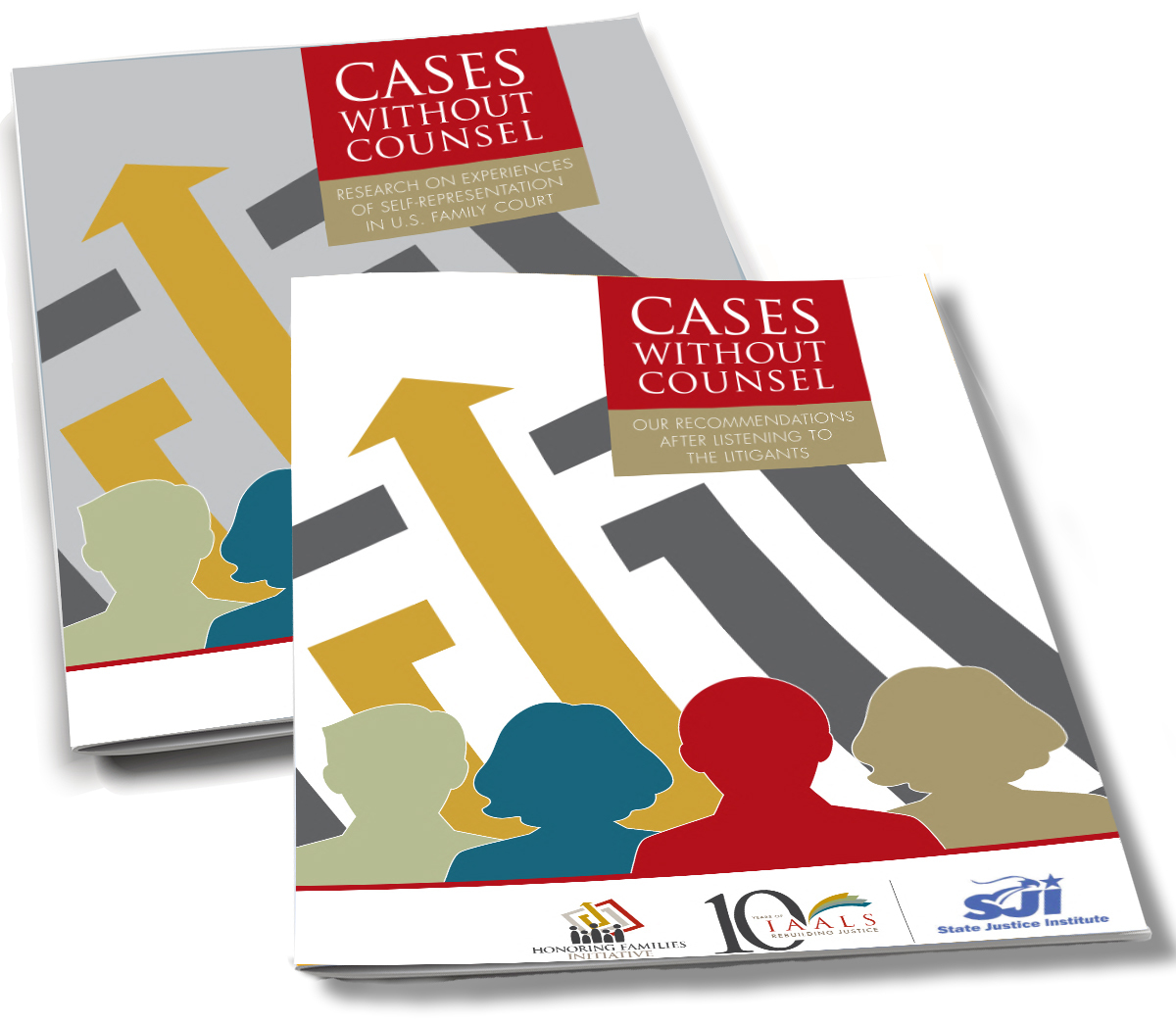Courts have responded to the increasing numbers of self-represented litigants in family cases in a number of ways, and, for the most part, these efforts have been informed largely by perspectives of judges, attorneys, and court staff. All too often, litigants are left out of conversations on improving the legal process. Our study, Cases Without Counsel: Experiences of Self-Representation in U.S. Family Court, asked self-represented litigants in family court about their experience with the legal process.
Most people’s experience with the American justice system is through the family courts. Every year, hundreds of thousands of people enter the U.S. courts seeking a divorce, separation, or resolution of child-related matters (like custody or child support). Some individuals hire a lawyer to help them through the entire process. But a large and growing number do not have an attorney and proceed self-represented through the court system for some or all of their case.
Cases Without Counsel was a first-of-its-kind, multi-state qualitative empirical research study designed to explore experiences, behaviors, perceptions, and feelings from the participants’ perspective and in the participants’ own words. Through one-on-one interviews with self-represented litigants in family court and those in the court who interact with these litigants regularly (like judges, self-help center staff, and court clerks), IAALS systematically explored self-represented litigants’ experience with the legal process. The study built on qualitative empirical research undertaken in Canada by Dr. Julie Macfarlane.
The study confirmed that many self-represented litigants cannot afford an attorney and that the court process is very difficult without legal help.
Project Team:



 The findings in our research report focus on major themes revealed through the study. In their own words, self-represented litigants and court professionals discuss the challenges involved in self-representation from their perspectives, including:
The findings in our research report focus on major themes revealed through the study. In their own words, self-represented litigants and court professionals discuss the challenges involved in self-representation from their perspectives, including:
- Factors motivating and influencing the decision to self-represent;
- Experiences of navigating the process; and
- Interactions with others, challenges encountered, and the role of emotion in self-representation.
Read and download the research.
Our final recommendations include materials and resources for those interested in learning more or implementing components in their respective jurisdictions. Ultimately, we suggest a change in the conversation on self-representation. System stakeholders must accept the onus of shared responsibility for helping self-represented litigants through the process. IAALS encourages court, legal, and broader community stakeholders to view these recommendations as blueprints for a coordinated response to better assist self-represented litigants in family court and a means through which to fulfill this shared responsibility.
Read and download the recommendations.

To help courts, legal services providers, broader communities, and other stakeholders best serve self-represented litigants in family cases, IAALS also created a number of toolkits that include additional resources for learning more and helping implement the various recommendations. Click here to access the toolkit.

In consideration of the findings from the Case Without Counsel study and others, including well-established national data on self-representation, IAALS launched the Court Compass project. The purpose of this project is to understand the experiences of individuals going through the divorce process without the assistance of a lawyer for some or all of their case, with the goal of making the process simpler and easier for others.

- The Tennessee Access to Justice Commission
- Larimer County District Court
- Multnomah County Circuit Court
- Davidson County Circuit Court
- Juvenile Court of Metropolitan Nashville and Davidson County
- Franklin County Family and Probate Court
- The Bohemian Foundation
- The State Justice Institute
- The State of Oregon
- William J. Howe, III
- Dr. Julie Macfarlane
- Sue Rice
- Dr. Marsha Kline Pruett

- Final Report, The National Self-Represented Litigants Project: Identifying and Meeting the Needs of Self-Represented Litigants
- Executive Summary, The National Self-Represented Litigants Project
- Self-Represented Litigation Network



